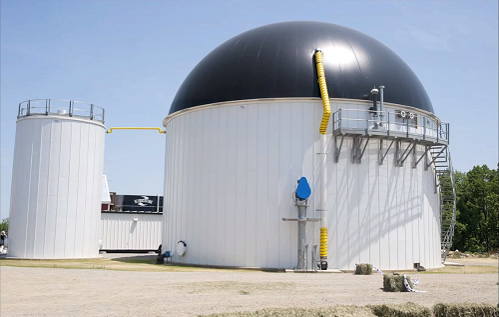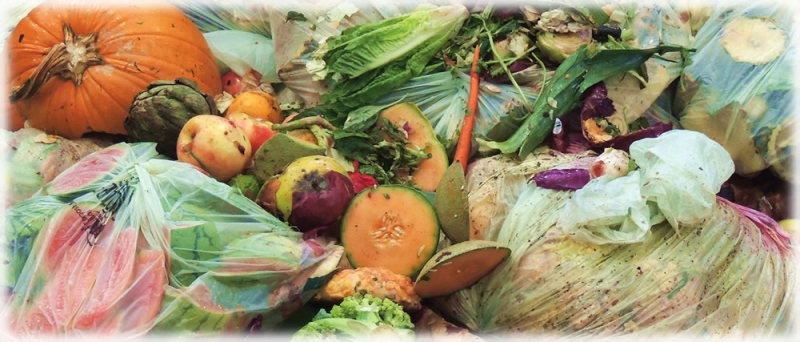Food Waste: Prevention, Recovery, and Recycling
The ELI Food Waste Initiative conducts research and works with stakeholders to prevent food waste, increase surplus food donation, and recycle the remaining food scraps.
Between 30%-40% of food is wasted along the supply chain, from processing through in-home and dining-out consumption. In 2015, in alignment with Target 12.3 of the UN Sustainable Development Goals, the U.S. announced a national goal to reduce food loss and waste by 50% by 2030. Reducing food waste will reduce food insecurity, save money for families and businesses, reduce greenhouse gas emissions, and protect the environment.
Program goals and objectives
ELI’s Food Waste Initiative aims to help stakeholders meet the U.S. food loss and waste goals by designing and implementing public policies and public-private initiatives to prevent food waste, increase donations of surplus food, and expand food scrap recycling.
Current and previous projects
One component of the program focuses on enabling municipalities and their communities to develop cross-cutting food waste prevention, recovery and recycling programs. Another component focuses on solving the dual challenges in achieving wasted food recycling goals—developing organics processing facilities (including composting, animal feeding operations, and anaerobic digestion) and developing collection and preprocessing systems to supply food waste feedstocks.
Modeling local strategies for food waste prevention: Nashville Food Waste Initiative
 The Nashville Food Waste Initiative (NFWI) develops and implements local strategies and tools to prevent food waste, rescue surplus food and recycle food scraps on the ground in Nashville. The Natural Resources Defense Council (NRDC) started NFWI as a pilot project to develop policies, strategies and tools for cities to address food waste. For the length of the pilot (2015-2020), ELI Senior Attorney Linda Breggin served as its Project Director. ELI currently serves as a Senior Strategic Advisor along with NRDC, and NFWI is now a permanent project of Urban Green Lab, a leading Nashville non-profit. Over the course of the project, ELI has conducted independent research projects to inform strategy development in Nashville. Research projects have examined barriers and opportunities with respect to stepping up surplus food rescue, bolstering food scrap recycling infrastructure, increasing private sector food scrap recycling, developing community composting projects and including food waste in climate mitigation and resilience plans.
The Nashville Food Waste Initiative (NFWI) develops and implements local strategies and tools to prevent food waste, rescue surplus food and recycle food scraps on the ground in Nashville. The Natural Resources Defense Council (NRDC) started NFWI as a pilot project to develop policies, strategies and tools for cities to address food waste. For the length of the pilot (2015-2020), ELI Senior Attorney Linda Breggin served as its Project Director. ELI currently serves as a Senior Strategic Advisor along with NRDC, and NFWI is now a permanent project of Urban Green Lab, a leading Nashville non-profit. Over the course of the project, ELI has conducted independent research projects to inform strategy development in Nashville. Research projects have examined barriers and opportunities with respect to stepping up surplus food rescue, bolstering food scrap recycling infrastructure, increasing private sector food scrap recycling, developing community composting projects and including food waste in climate mitigation and resilience plans.
NFWI’s work has been covered by numerous local and national media outlets, including National Public Radio’s Here and Now in a segment entitled, "When It Comes To Food In Nashville, It's Waste Not, Want Not." NFWI’s YouTube Channel features videos of key local events.
Nashville Food Waste Initiative Reports:
- A Toolkit for Incorporating Food Waste in Municipal Climate Action Plans
- Model Compost Procurement Policy With Commentaries
- Model Compost Procurement Policy Without Commentaries
- Slide Deck for Model Compost Procurement Policy ELI and NRDC can work with individual municipalities to customize this presentation upon request.
- Landscape Analysis of Community Composting in Nashville
- Landscape Analysis of Industrial, Commercial, and Institutional Food Scrap Recycling in Nashville
- Landscape Analysis of Food Rescue in Nashville
Promoting food waste recycling solutions
Breaking Logjams and Facilitating Adoption of Anaerobic Digestion for Food Waste

A major challenge to food waste recycling is the lack of organics recycling facilities. One solution with substantial untapped potential is anaerobic digestion (AD), which can occur in standalone facilities, or in farm or wastewater digesters. Though AD of food waste can contribute to the circular economy by creating renewable energy and recycling soil nutrients and amendments, various perceived impediments and risks have limited adoption to date. ELI has assembled a team of experts with decades of experience in the field to work with AD project stakeholders to break logjams and facilitate adoption of AD for recycling food waste. The first cohort of five states committed to expanding the role of AD has signed on to the project. The project team will work with 6 to 8 food waste AD project sites (identified by Partner states and Indian Nations) that are facing logjams, in order to produce quantifiable advances in food waste recycling. This project builds on past ELI projects exploring policy and organizational solutions to recycling food waste (outlined below).
Organics Disposal Bans and Organics Processing Infrastructure

To address a gap in organics processing infrastructure, four states in New England — Vermont, Massachusetts, Connecticut and Rhode Island —were the first to adopt bans on landfill disposal of organics. Inverting the logic in the movie Field of Dreams (“if we build it, they will come”), the implied logic of the bans is that if a supply of organic feedstock can be created, the infrastructure to process it will be built. ELI research found that the four states have advanced toward their processing capacity goals with varying degrees of success, and highlighted the complementary policies states adopted to create an environment conducive to success.
Evaluating Business Cases for Co-Digestion of Food Waste at Water Resource Recovery Facilities

Diverting food waste to anaerobic digestion at existing municipal wastewater plants fits with new “utility of the future” vision of transforming the utilities’ enterprise from managing waste to managing the recovery of valuable resources; further, substantial excess capacity exists in AD facilities currently serving the sector. With the goal of stimulating and informing further evaluation and adoption of co-digestion, ELI research funded by the Water Research Foundation provides insights about the strategies water resource recovery facilities (WRRFs) have used to successfully address the range of risks and impediments they face in adopting co-digestion. The report also provides a diagnostic framework that individual WRRFs can use to analyze opportunities and potential business strategies for co-digestion at their own facilities, and provides a number of tools to support WRRFs in the process.